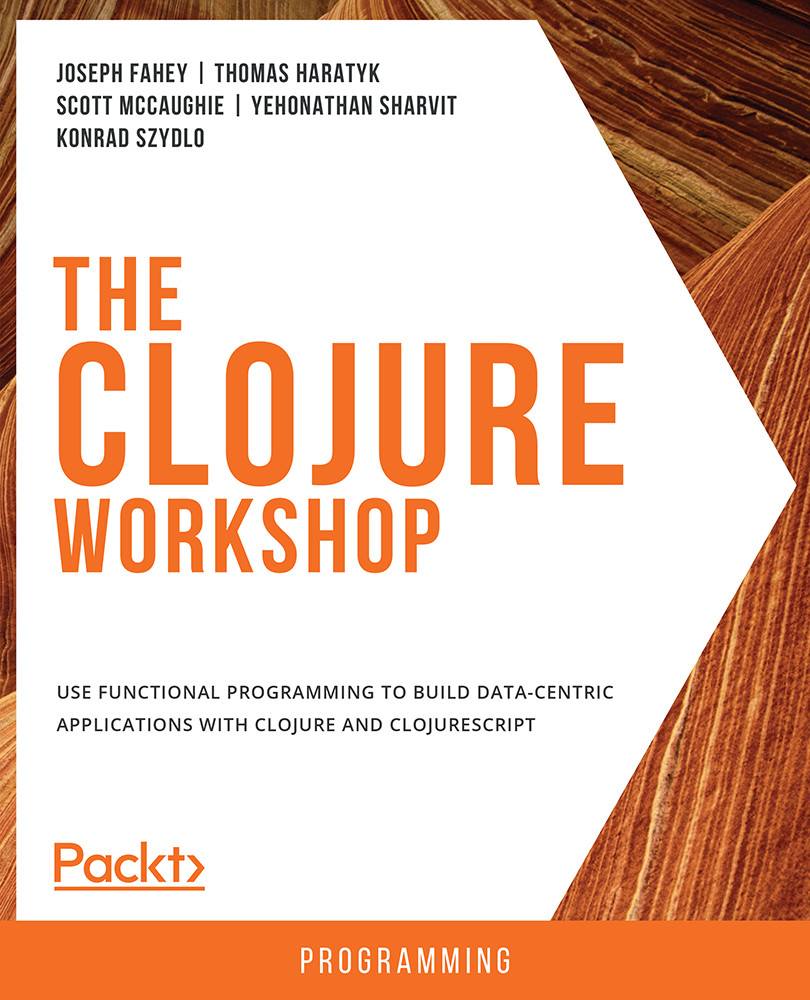-
Book Overview & Buying

-
Table Of Contents

The Clojure Workshop
By :

The Clojure Workshop
By:
Overview of this book
 Free Chapter
Free Chapter
 Sign In
Start Free Trial
Sign In
Start Free Trial


 Free Chapter
Free Chapter
Any code written by a developer needs to be converted to code that is understood by a machine. An interpreter uses code from a developer and compiles it into machine code. Each operating system is different, hence the need for platform-specific compilers and interpreters. One of the reasons why Java is so successful is that it provides the JVM, which takes human-understandable code and converts it into machine code. Developers are not usually interested in the JVM. They can focus on writing code in Java without interacting with the underlying operating system. This job is done by the JVM.
Clojure is a hosted language. It means that it uses the JVM instead of creating a new runtime environment. Clojure cleverly reuses facilities provided by the JVM. This is a very powerful approach. Things such as garbage collection, threading, concurrency, IO operations (all of which will be explained in the following paragraphs) are JVM battle-tested technologies that Clojure...
